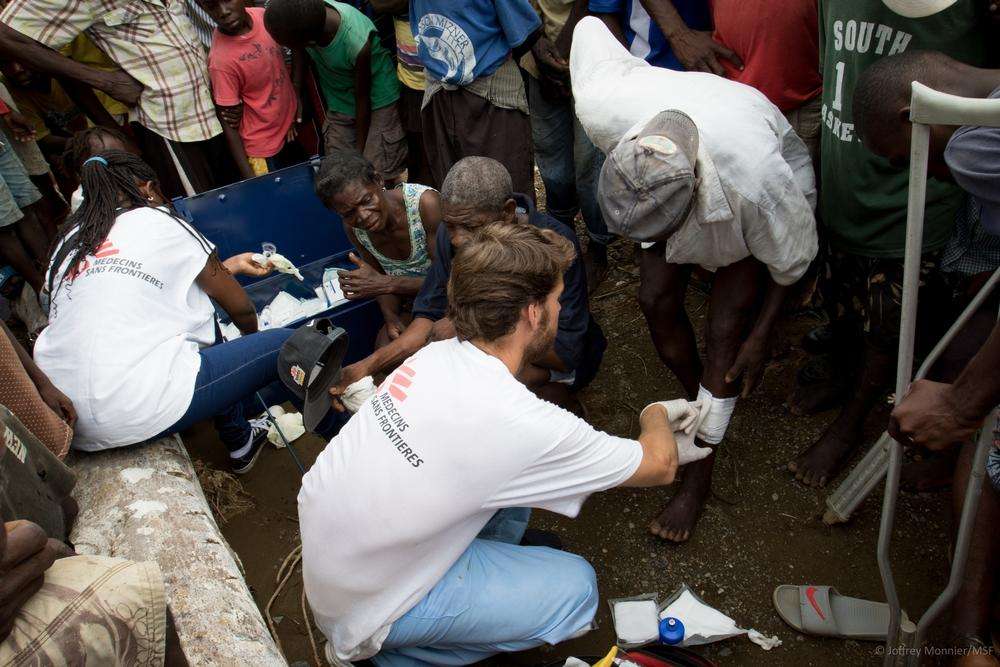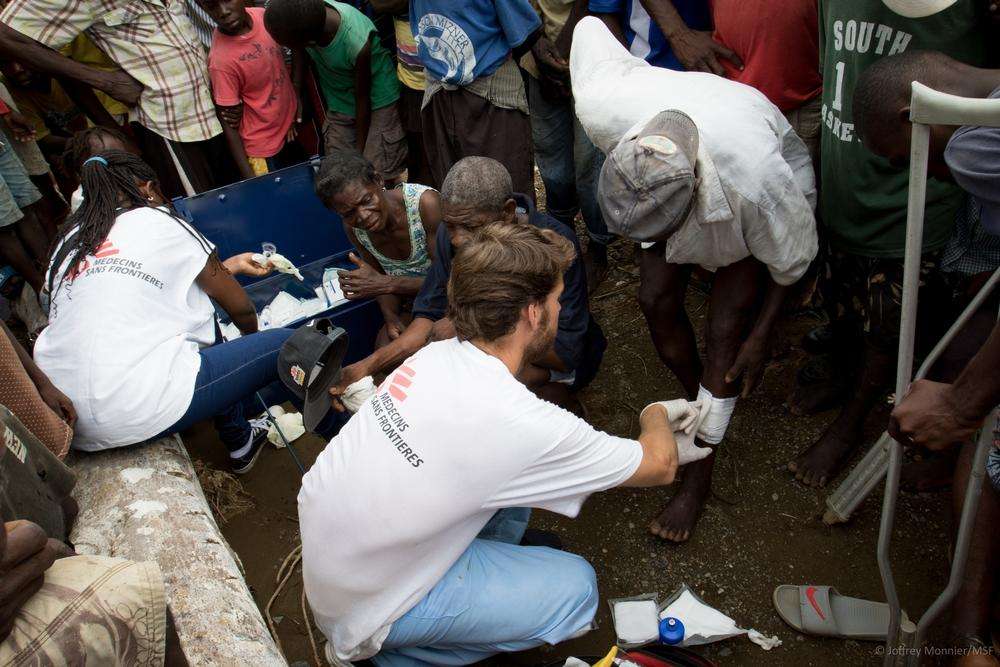Three weeks after Hurricane Matthew struck Haiti, residents of many remote communities are still struggling to access much-needed medical care. Doctors Without Borders/Médecins Sans Frontières (MSF) is using every possible method--including helicopters--to reach isolated villages. Here, MSF doctor Danielle Perreault describes visiting the village of Pourcine in response to an emergency call.
We finally succeeded in reaching the people of Pourcine! The mayor of this farming village nestled in the high mountains called for emergency relief, which we learned of a few days ago. There were 14 people with serious injuries and one pregnant woman whose health status was unknown.
Since we received word of their situation, day after day, storms typical of the rainy season prevented us from sending assistance via helicopter.
Locating this high-altitude village was no simple feat. GPS coordinates first directed us to a spot between rocky crags where no person could live. But just past an overhang, we finally spied the village, much to our relief.
The pilot gave me three hours but warned me that if he spotted any threatening clouds, our trip would abruptly be cut short.
We were ready. I was accompanied by two local nurses and a health promoter—we were all used to working together.
At first, it was complete chaos! In the middle of a field, in direct sunlight, [community members] brought in school benches, to which I directed patients who had been hauled in on the backs of men. I evaluated the most serious wounds and the nurses got to work. But I interrupted one of the nurses so she could attend to a five-year-old girl stricken with cholera and severe dehydration. A health promoter began inquiring into family history and distributing Aquatabs (water purification tablets). I am still shocked to see cholera treated as such an everyday occurrence.
Addressing the Needs
I evaluated a woman in tears, suffering from a fractured forearm. A plaster splint gave her relief and I even got a smile in return. A man came to us limping, and I had to determine if his swollen foot was the result of an infection or a fracture.
A poor woman in her twenties was in the worst shape. A few days prior, she had had an incomplete miscarriage at four months into her pregnancy. Supported by her worried husband, she perked up a bit after a couple of transfusions. I started her on antibiotics but then had to rush off to care for other more serious cases.
Much to my surprise, many wounds were not infected, despite the lack of care. I then discovered that the traditional healer had applied a plaster made from olive leaves.
We announced our departure to the people, explaining that we urgently needed to take their neighbor to the hospital, and promising to return. At least we knew we were leaving no one in danger. Several people still attempted to show us their lesions, lifting their shirts or pant legs.
In the helicopter on the way back, we were again struck by the total devastation. There is still much work to be done…
Read More: Deteriorating Health in Hurricane-Affected Areas





